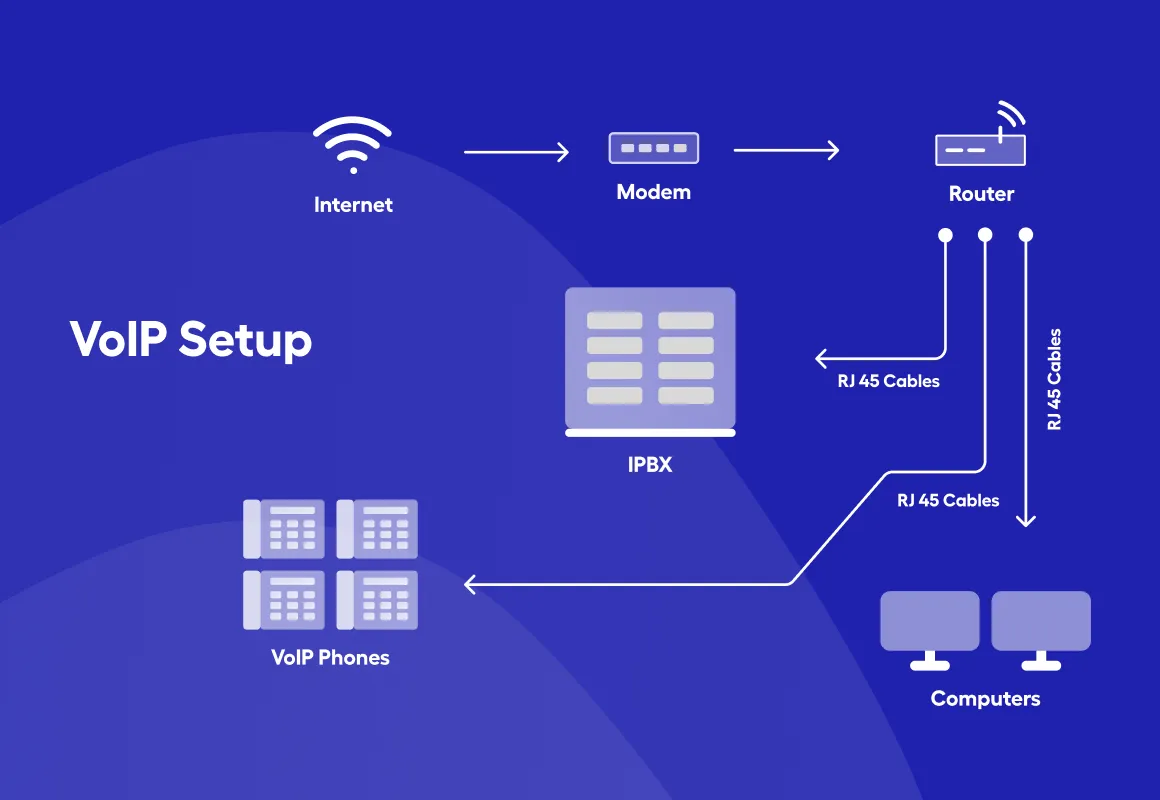What Makes VoIP Phone Service Ideal for Remote Teams?

The shift toward remote work has prompted businesses to reevaluate their communication systems. One of the most popular solutions for remote teams is VoIP phone service, which offers a flexible and cost-effective way to stay connected. VoIP, or Voice over Internet Protocol, allows teams to make and receive calls over the internet instead of using traditional phone lines. This technology has become a game-changer for businesses with distributed workforces, providing seamless communication no matter where team members are located. In this article, we will explore the key reasons why VoIP phone service is an ideal choice for remote teams.
1. Seamless Communication Across Locations
One of the primary advantages of VoIP phone service for remote teams is the ability to facilitate seamless communication between team members, regardless of their location. With traditional phone systems, communication can be disrupted by distance, especially when team members are spread across different cities or countries. VoIP, however, uses the internet to route calls, making it easy for team members to stay connected no matter where they are working from.
For remote teams, this means they can use VoIP to maintain constant communication, whether they are at home, in a coffee shop, or traveling. The technology supports features like call forwarding and call routing, which ensure that calls can be answered by the appropriate person at any time. With VoIP, remote teams can rely on consistent communication without worrying about geographical barriers or time zone differences.
2. Cost-Effective Solution for Remote Teams
Another significant benefit of VoIP phone service for remote teams is its cost efficiency. Traditional phone systems often come with high long-distance charges, especially for businesses that have remote employees or clients across the globe. With VoIP, however, these costs are eliminated, as calls are made over the internet. This is especially advantageous for remote teams, as they can make international or long-distance calls without incurring additional charges.
Furthermore, VoIP services often come with flexible pricing models that cater to different business sizes and needs. Businesses with remote teams can choose plans that match their specific communication requirements, which helps them avoid overpaying for features they do not need. The affordability of VoIP makes it an ideal solution for businesses looking to keep communication costs low while still offering a reliable service for their remote workforce.
3. Easy Integration with Other Business Tools
VoIP phone service also offers easy integration with other business tools, which is particularly beneficial for remote teams. Most VoIP providers offer integrations with customer relationship management (CRM) systems, email platforms, and project management tools, allowing remote teams to streamline their workflow and improve productivity.
For example, a remote team can integrate their VoIP system with a CRM to automatically log customer calls and track communication history. This eliminates the need for manual record-keeping and helps teams stay organized. VoIP services can also integrate with video conferencing tools, enabling teams to switch between voice calls and video meetings with ease. The seamless integration of VoIP with other business systems allows remote teams to manage all their communication needs within one unified platform, improving efficiency and collaboration.
4. Flexibility and Mobility for Remote Workers
One of the main reasons why VoIP phone service is ideal for remote teams is the flexibility it offers. Remote workers are often on the go, whether they are working from home, co-working spaces, or while traveling. VoIP allows workers to take their office phone system with them wherever they go, as long as they have an internet connection.
Remote employees can use their VoIP phone service on various devices, such as smartphones, laptops, and tablets, ensuring that they can make and receive calls from virtually anywhere. This flexibility is especially important for teams that require frequent communication with clients, partners, or other employees. With VoIP, remote workers are not tied to a physical office or landline, allowing them to stay productive and connected, no matter where they are located.
5. Enhanced Collaboration Tools for Teams
Effective collaboration is crucial for the success of remote teams, and VoIP phone services provide a range of features that support this. In addition to voice calls, VoIP services often come with features like instant messaging, video conferencing, voicemail-to-email, and file sharing. These tools allow remote teams to collaborate more effectively by making it easy to share information and stay in touch in real-time.
For instance, remote workers can instantly message each other to clarify tasks or exchange information, reducing the need for back-and-forth emails. VoIP systems also support video conferencing, which is essential for virtual meetings and brainstorming sessions. These collaboration tools make it easier for remote teams to stay connected and work together on projects, despite being physically distant from each other.
6. Security and Reliability for Remote Teams
Security and reliability are top priorities for any business, especially for remote teams that may be accessing company data and systems from various locations. VoIP phone service offers a high level of security by encrypting calls and protecting data. Most VoIP providers offer advanced security features, such as secure sockets layer (SSL) encryption, to ensure that conversations remain private and protected from cyber threats.
Moreover, VoIP systems are typically hosted in the cloud, meaning that businesses do not need to worry about maintaining physical infrastructure. Cloud-based VoIP services are reliable and ensure that remote teams can always stay connected. In the event of a power outage or network issue, cloud-based VoIP systems can automatically reroute calls to other devices or numbers, minimizing downtime and ensuring that teams can continue communicating.
Conclusion:
In conclusion, VoIP phone service is the ideal communication solution for remote teams due to its ability to facilitate seamless communication, cost savings, flexibility, and advanced collaboration tools. The integration of VoIP with other business systems further enhances productivity and streamlines operations, while its security features ensure that sensitive data remains protected. With VoIP, remote teams can stay connected, work efficiently, and collaborate effortlessly, making it a valuable tool for businesses with distributed workforces. As remote work continues to rise, VoIP phone service remains a reliable and cost-effective choice for teams across the globe.



